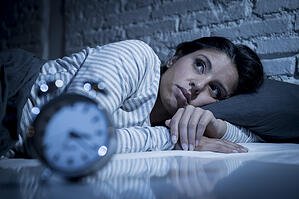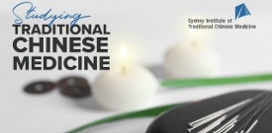Menu
- SITCM Overview
- Prospective Students
- Current Students
- Alumni
- Teaching Clinic
The ancient Chinese believed that sleep is essential to maintaining health. Learned Chinese sages wrote,
“…replenishing health with medicine is not as good as replenishing health with diet, but…replenishing health with sleep is the best treatment of all.”

In traditional Chinese medicine (TCM), night time is Yin and daytime is Yang. Night time is or the functions of resting, digesting, and sleeping. Daytime is for working, eating, and exercising. TCM is about the rhythms natural to the body. TCM divides the day into 12, two-hour sections, each associated with a different organ of the body. The lungs, Large intestine, and liver/gallbladder (the digestive organs) are all strongest at night and the food consumption organs (spleen and stomach) are strongest in the morning. Thus, breakfast is the most important meal of the day which provides Qi, ch’i or energy for the day’s activities. The day is for food intake, and the night is for detoxification to bring the body back into balance.
TCM pays a lot of attention to the sleep cycle and sleeps problems. The Chinese practitioner will differentiate between trouble falling asleep, difficulty staying asleep, and having sleep-disturbing mental states and dreams. Reducing stress that causes daily imbalance, avoiding late meals which throws the organs out of balance, stimulating activities at night, and chemical stimulants are counteracted with counselling, herbal medicines, nutrition, as well as techniques of acupuncture.
Western medicine will search for a physical or emotional problem causing sleeplessness or sleep problems. TCM looks at the balance between night and day. TCM is concerned that insomnia or other sleep problems can stem from a fundamental imbalance of energy or Qi. Sleeping pills and anti-depressant drugs commonly prescribed for sleep disorders can become addictive. Patients begin to require the chemicals to sleep. TCM offers less intrusive treatments of acupuncture and herbal remedies. What is prescribed depends on the particular patient’s imbalance and poor distribution of Energy over the day. Sleep is often disturbed by common conditions such as emotional stresses, aches, and pains, digestive problems that can originate from the inappropriate distribution of eating or activity over day and night.
Sunlight, food, and stimulation in the morning and quiet, and restful activity at night build habits that fit the natural rhythm of the body. One way to keep things on a schedule is to flood your body with sunlight early in the morning. Opening blinds or curtains in the morning and restful activity in the afternoon and evening encourage the right production of daytime body chemistry.
Acupuncture is widely recognised as an effective way of removing emotional conditions such as depression and anxiety that can cause insomnia. Acupuncture has been found to stimulate the body’s natural pain relief and pleasure generating mechanisms that are important for restful sleep. Acupuncture has also been found to improve respiration and reduce the effect of allergies.
Herbal medicine is one of the great contributions of Traditional Chinese Medicine. The science and art of herbal medicine has expanded well beyond China. Traditional and newly discovered herbal medications may be packaged in a western style and marketed commercially in a way traditional Chinese medicine would never have been. Herbal medications are not like sleeping pills or painkiller medications, which may be addicting or whose effectiveness can be only temporary.
There are many herbal remedies widely available in western markets that are associated with improved sleep. Many remedies are in the form of teas. Some come packaged in modern dress as supplement tablet such as:
Sydney Institute of Traditional Chinese Medicine ( SITCM) has been educating industry-ready practitioners in Traditional Chinese Medicine in Australia since 1984. It was established to promote the growth and development of Traditional Chinese Medicine (TCM) within our community and the health profession by providing accredited courses of the highest standards. Please contact us to learn more.
Click below to download our FREE guide on Studying Traditional Chinese Medicine.
